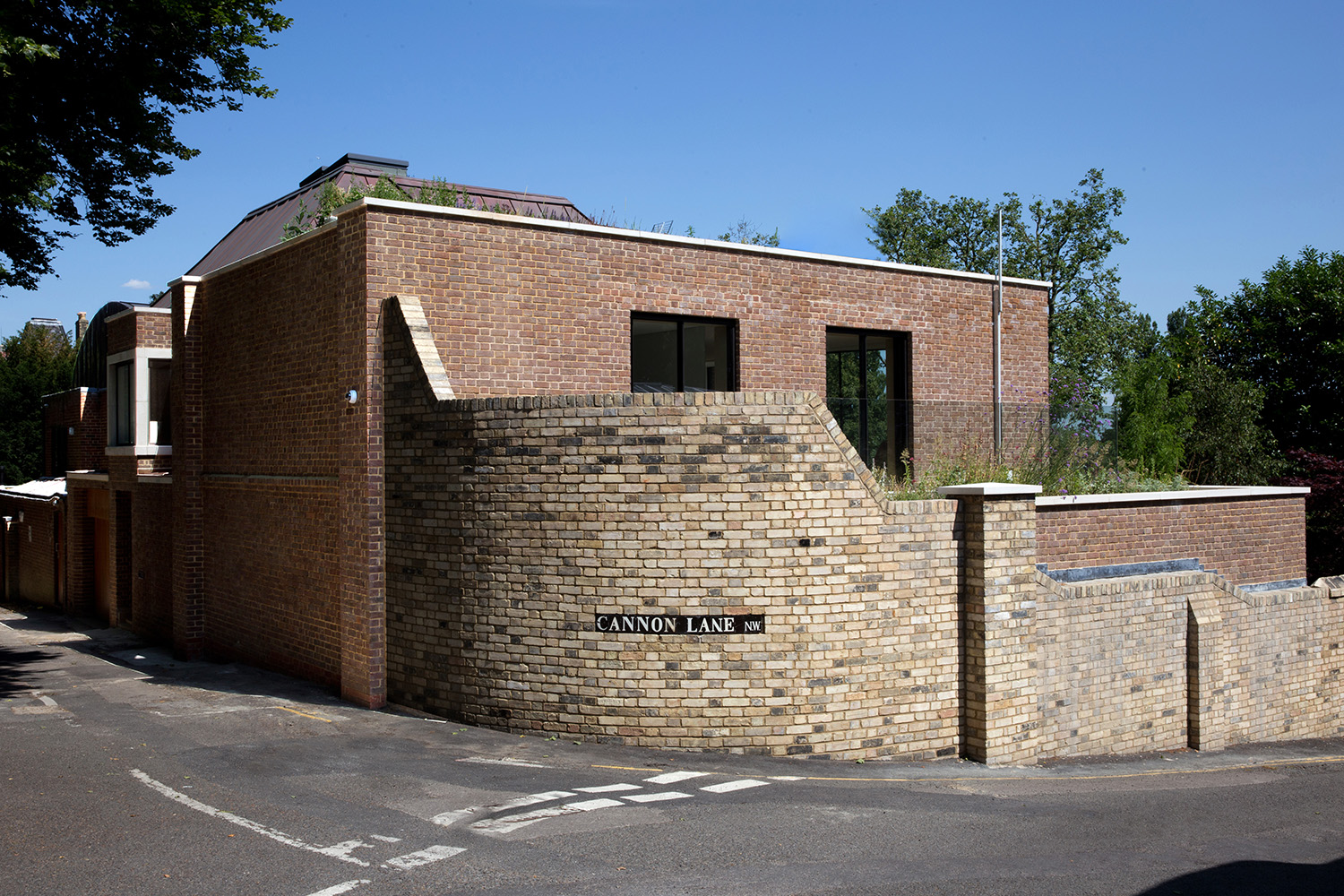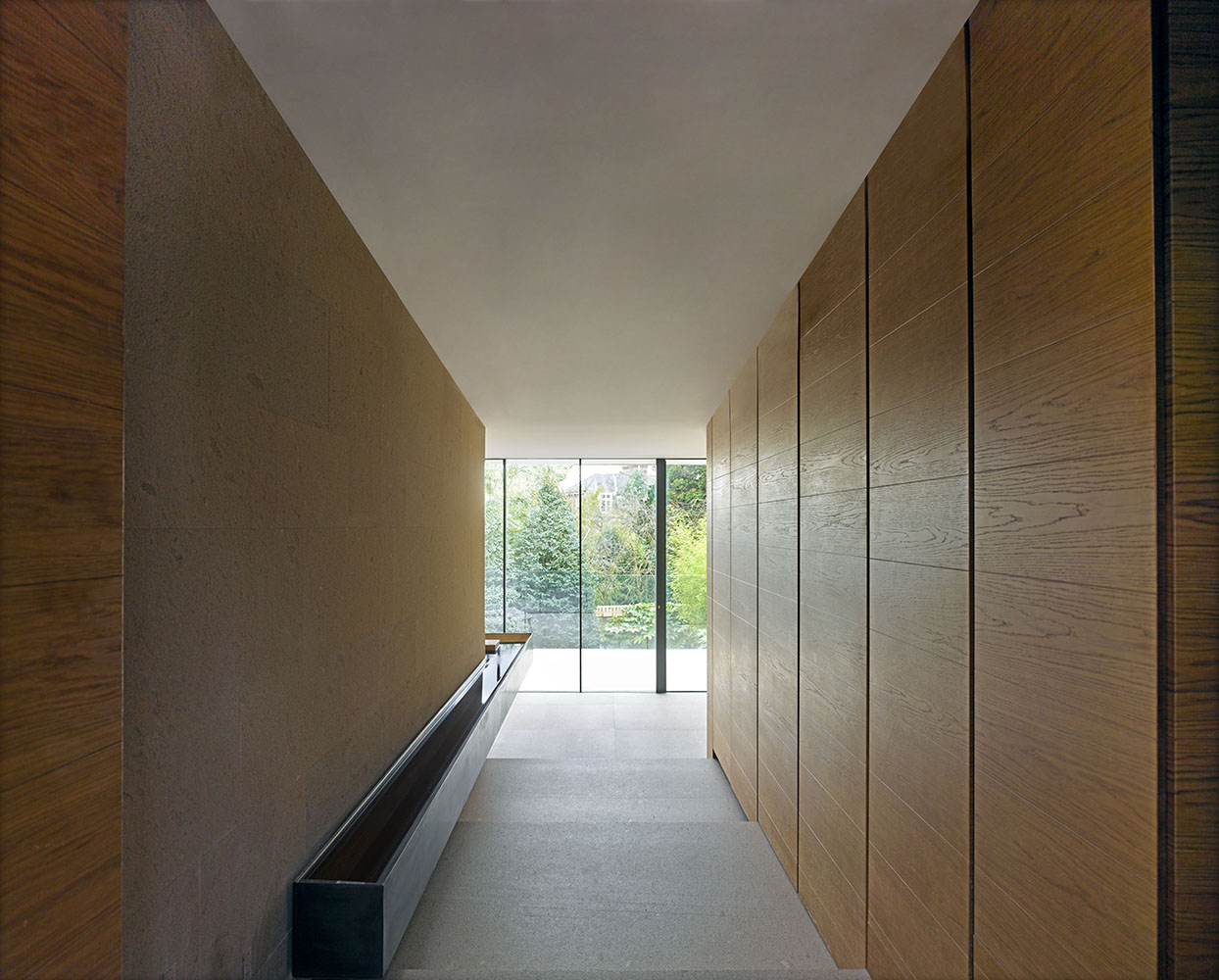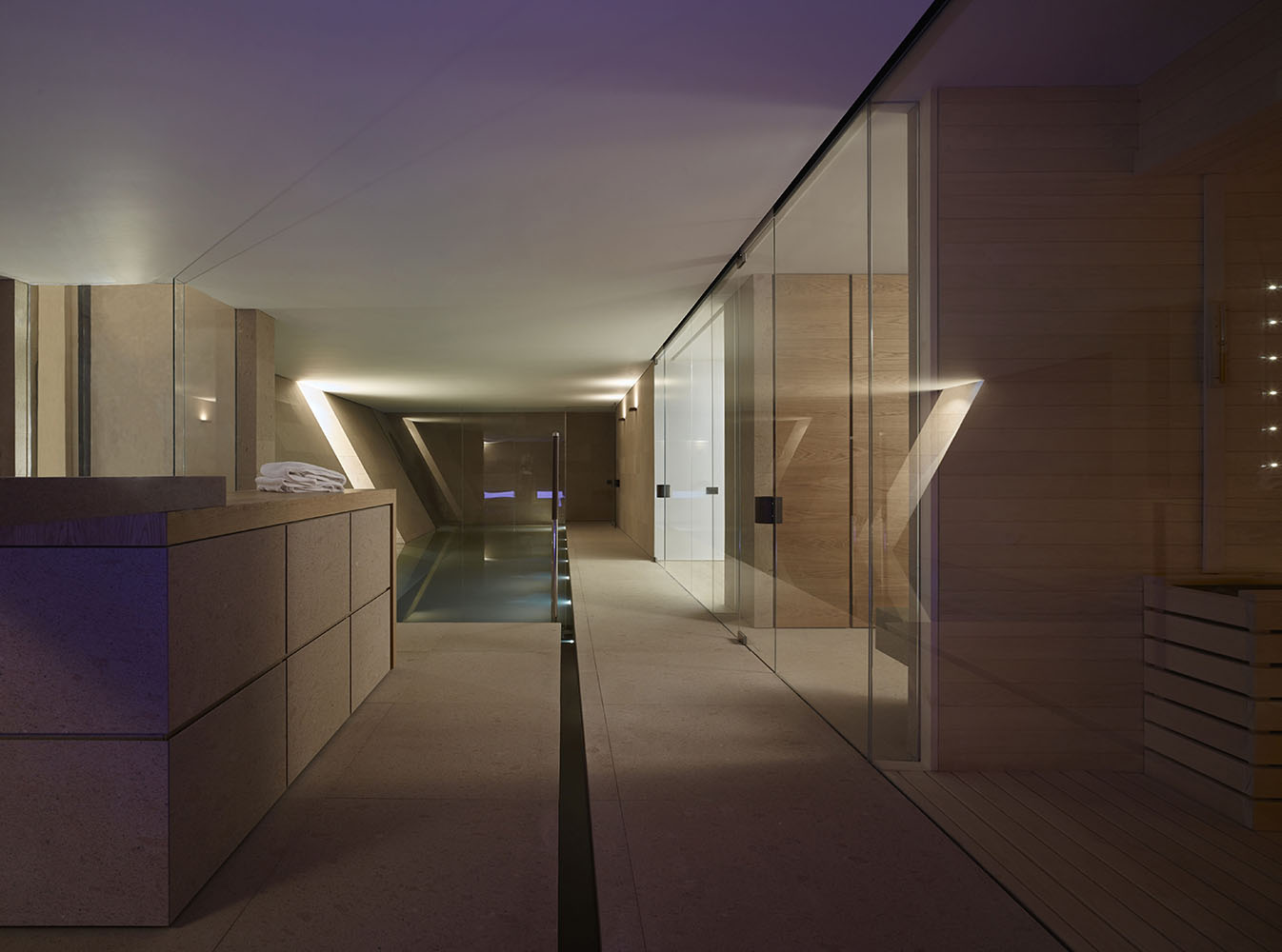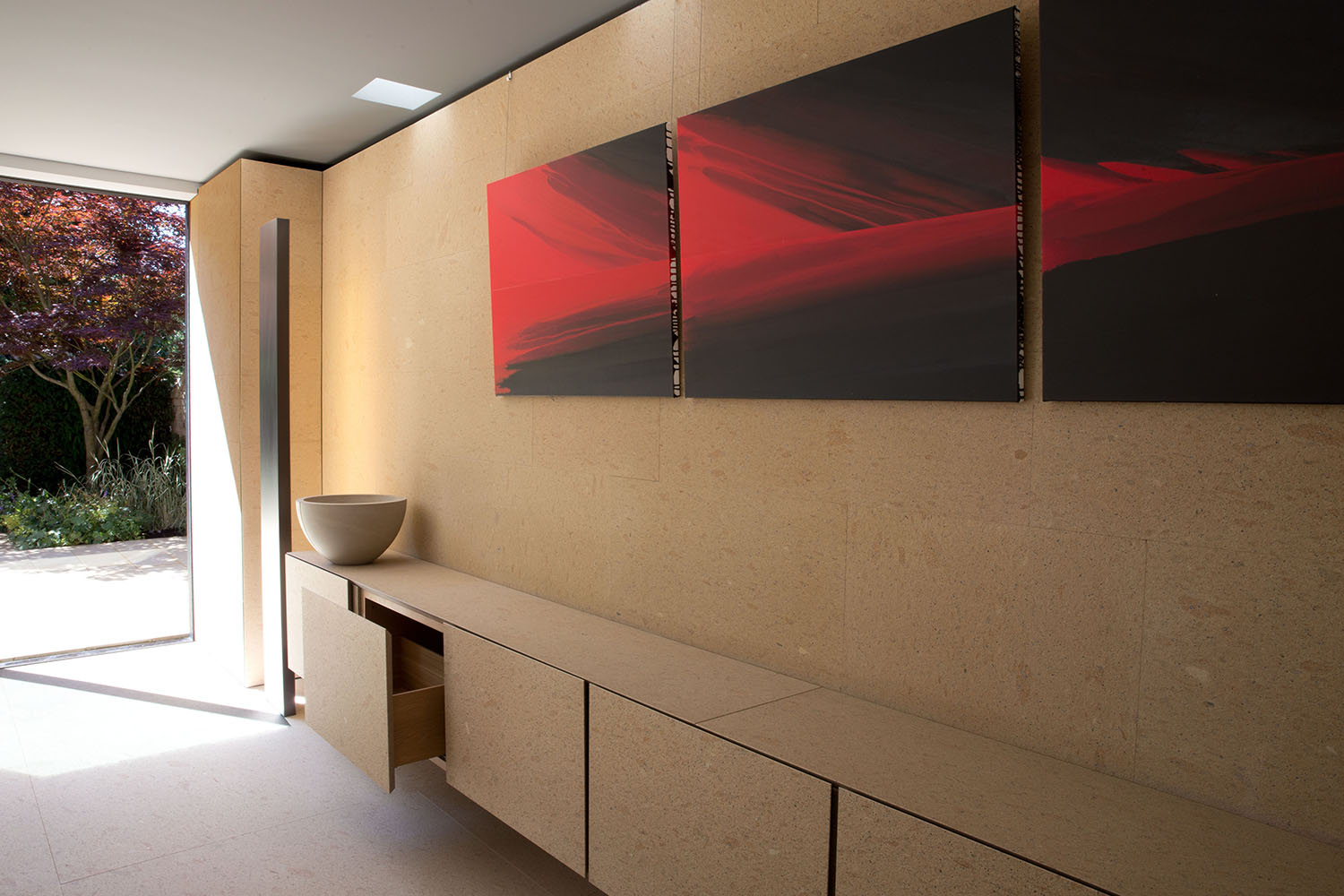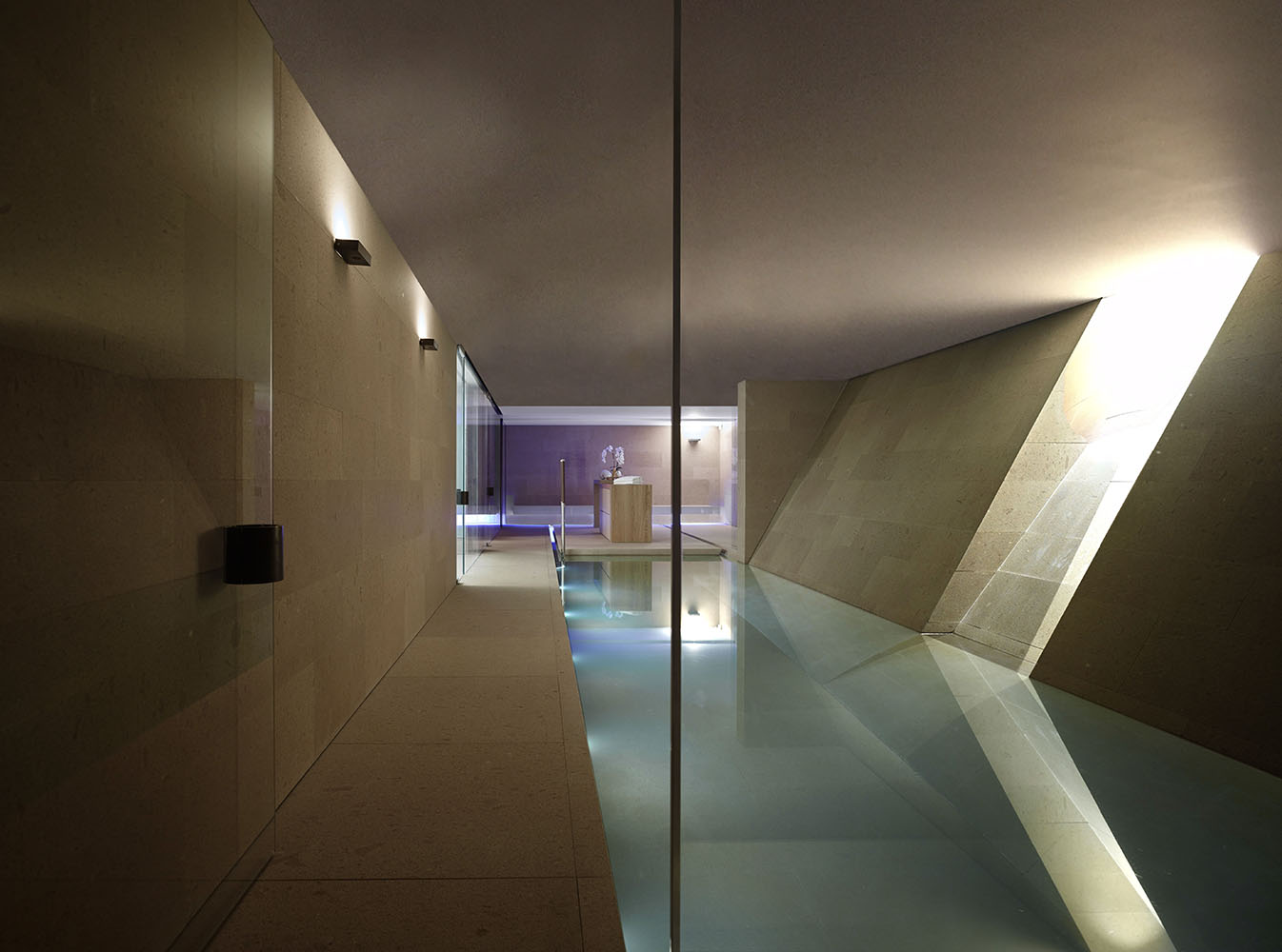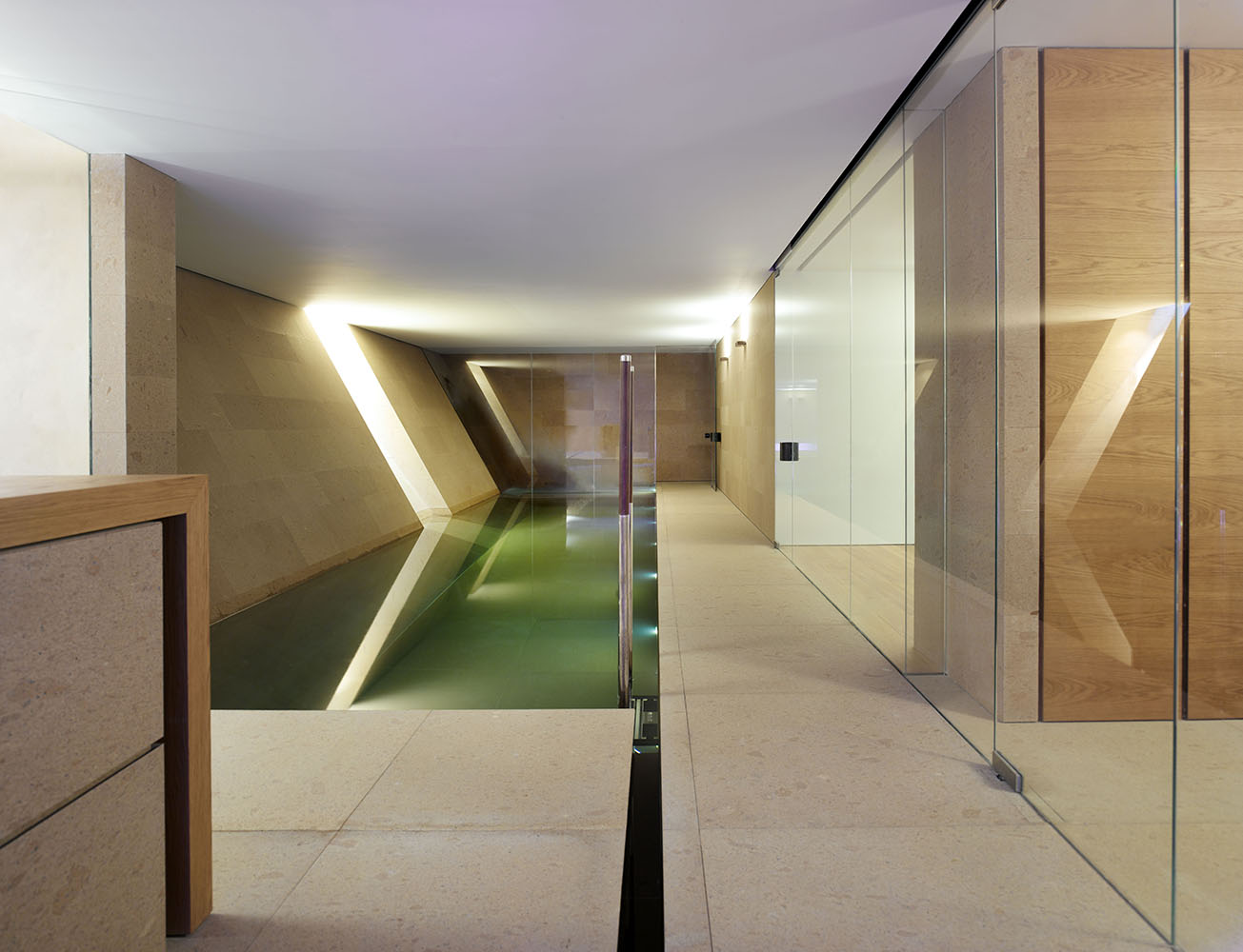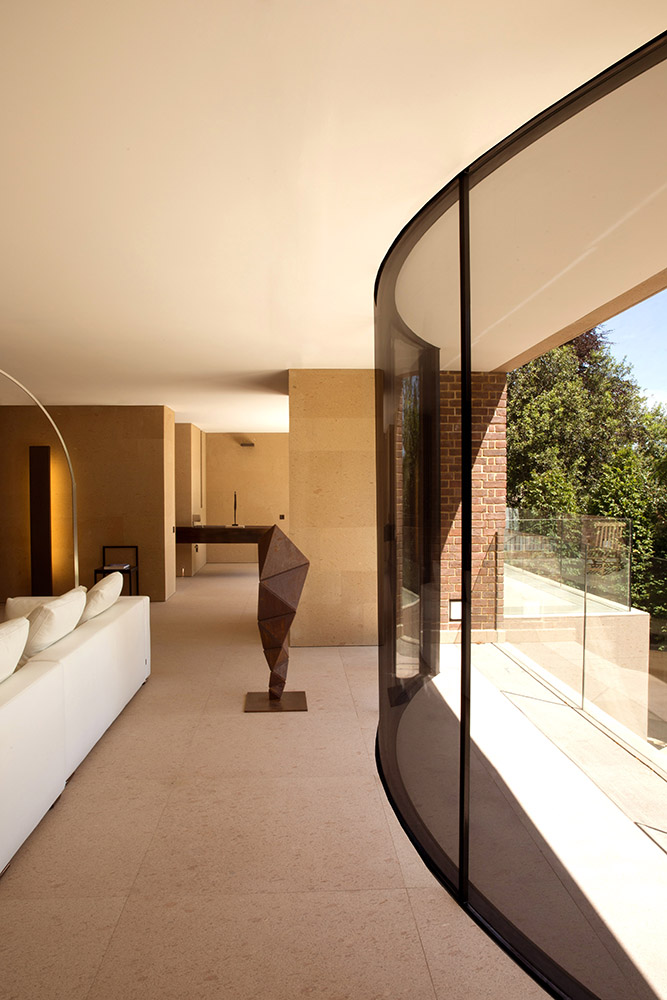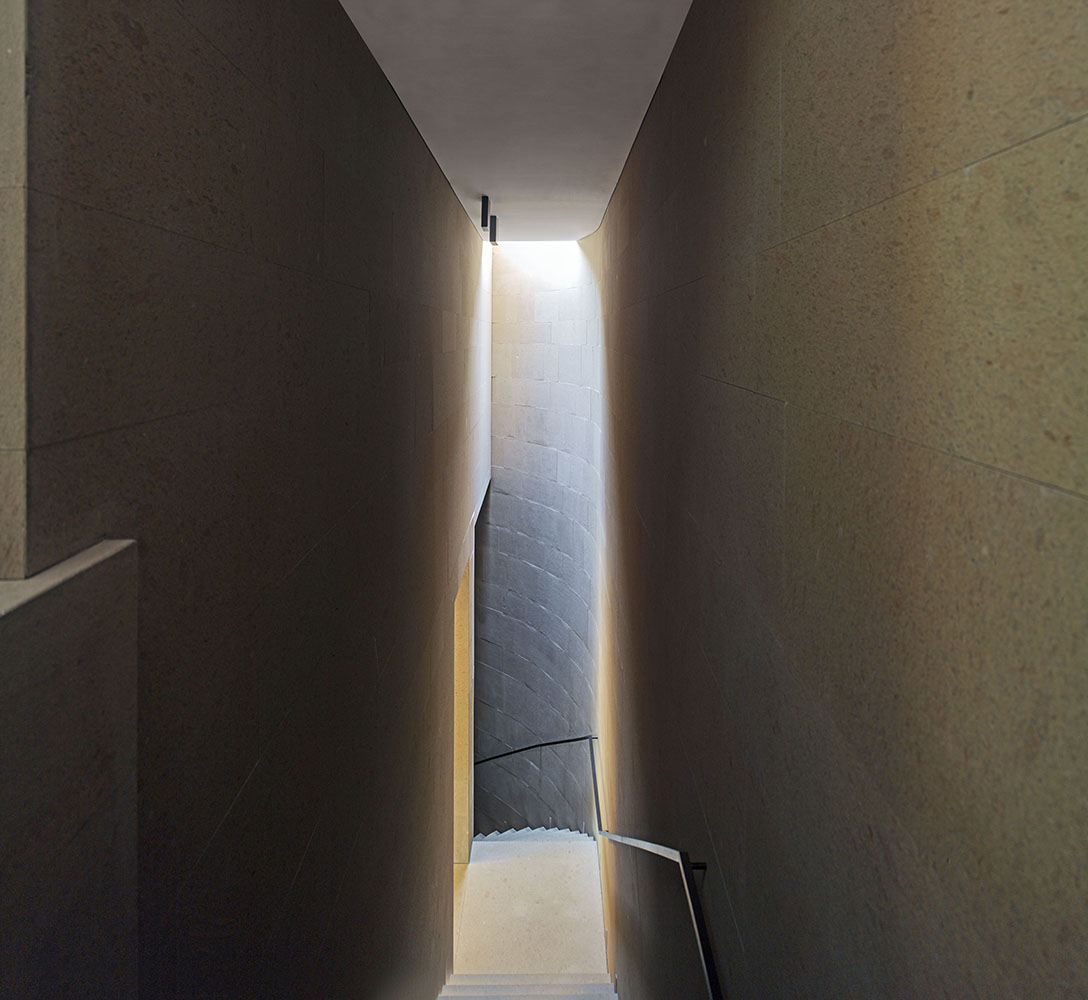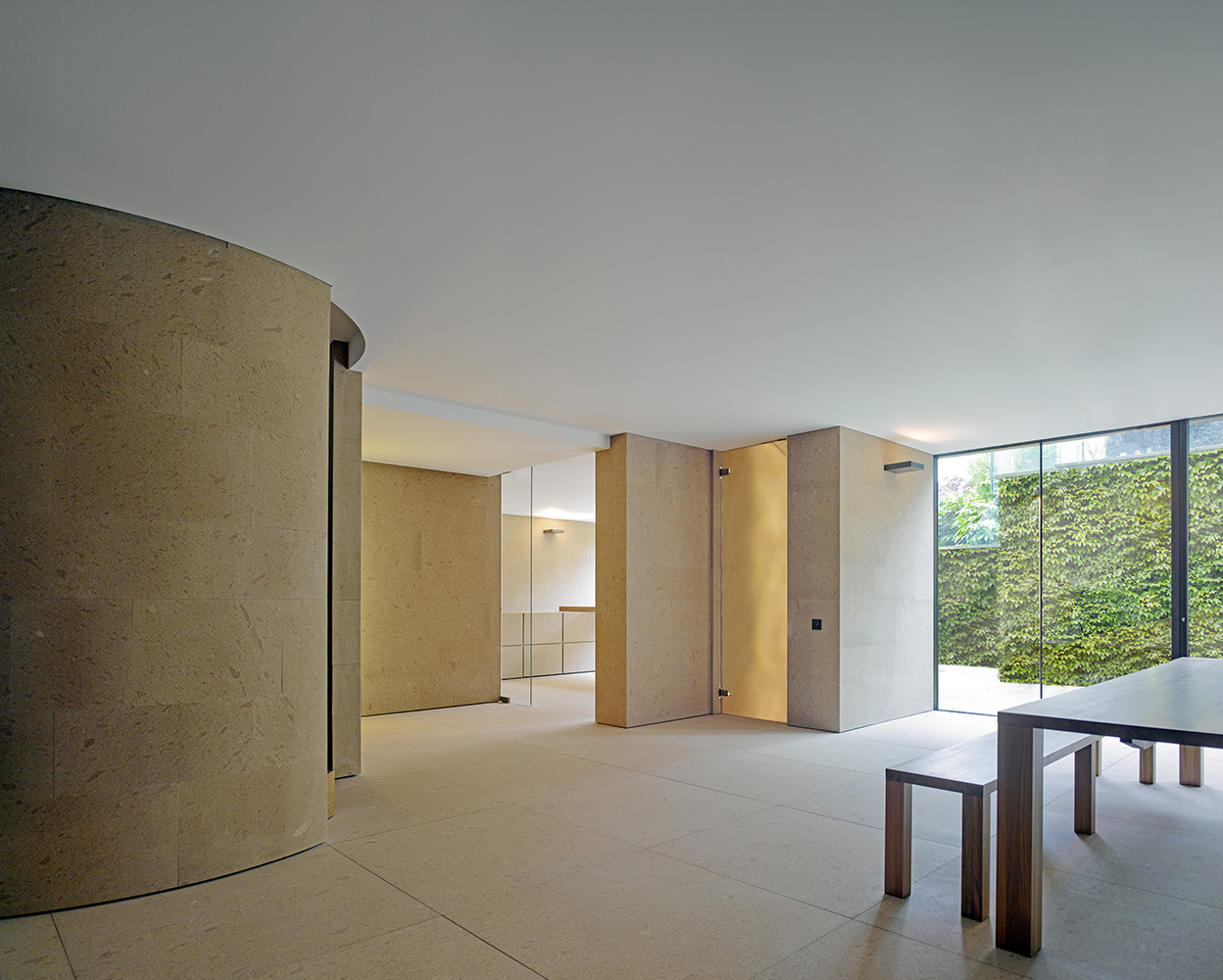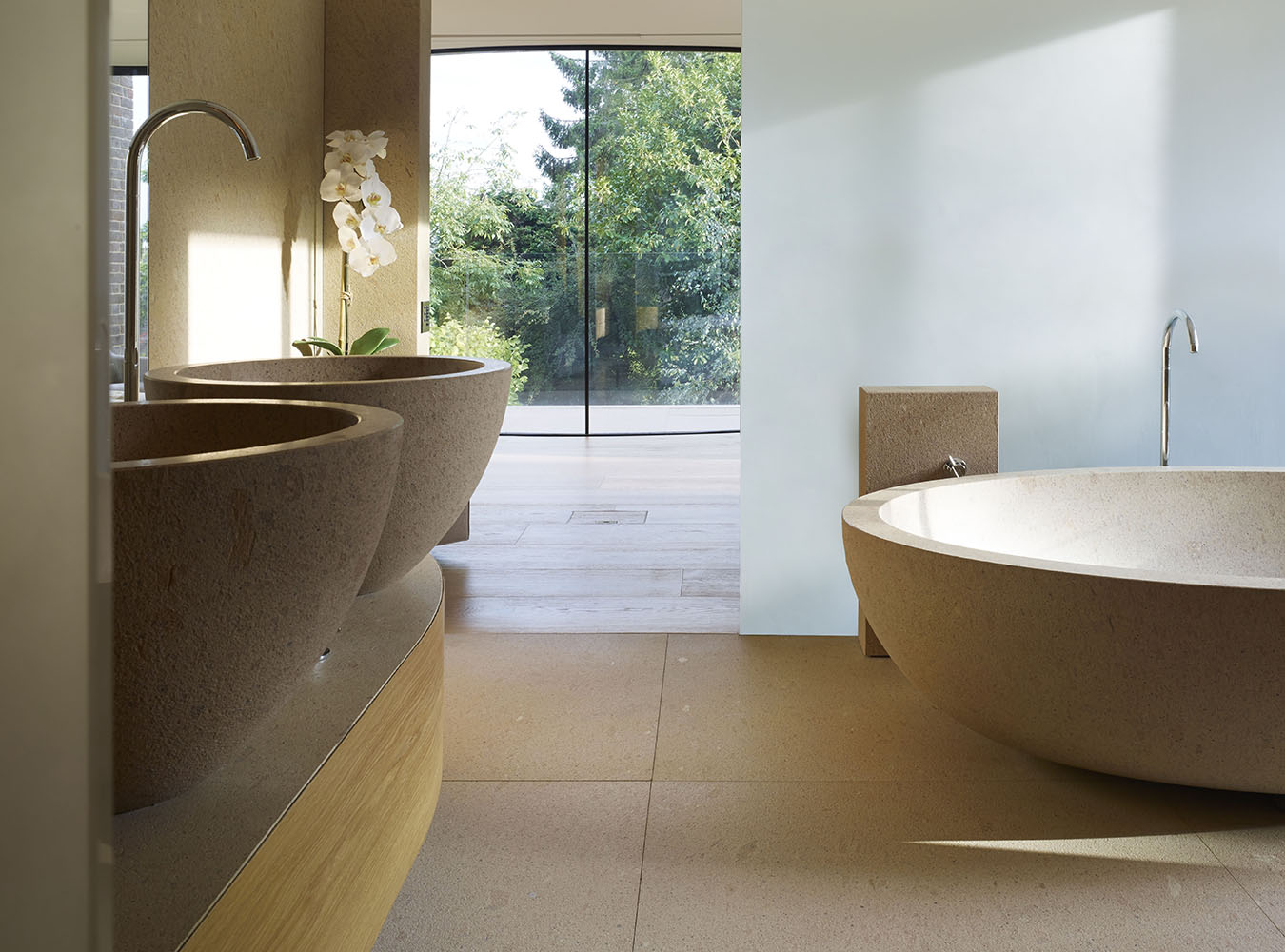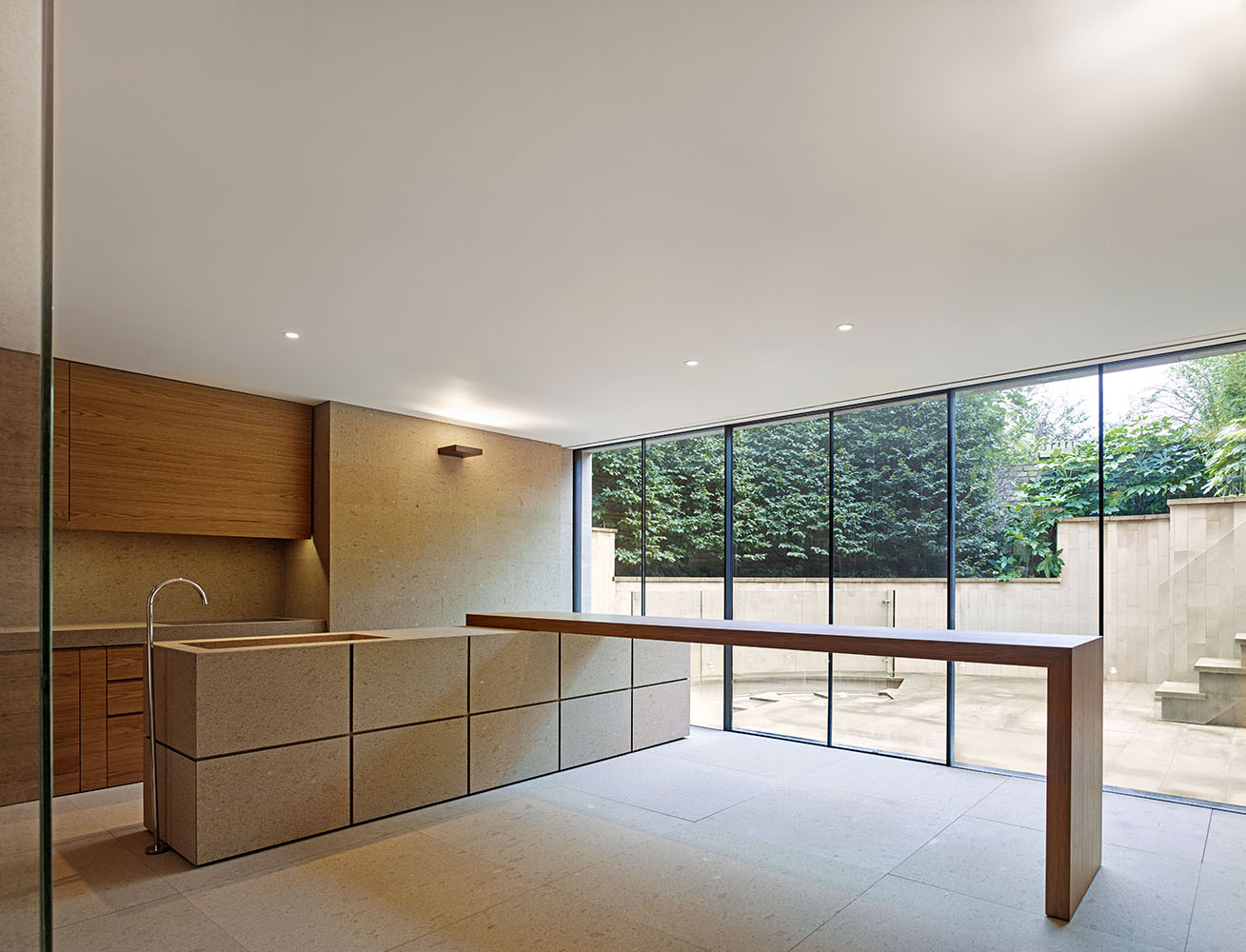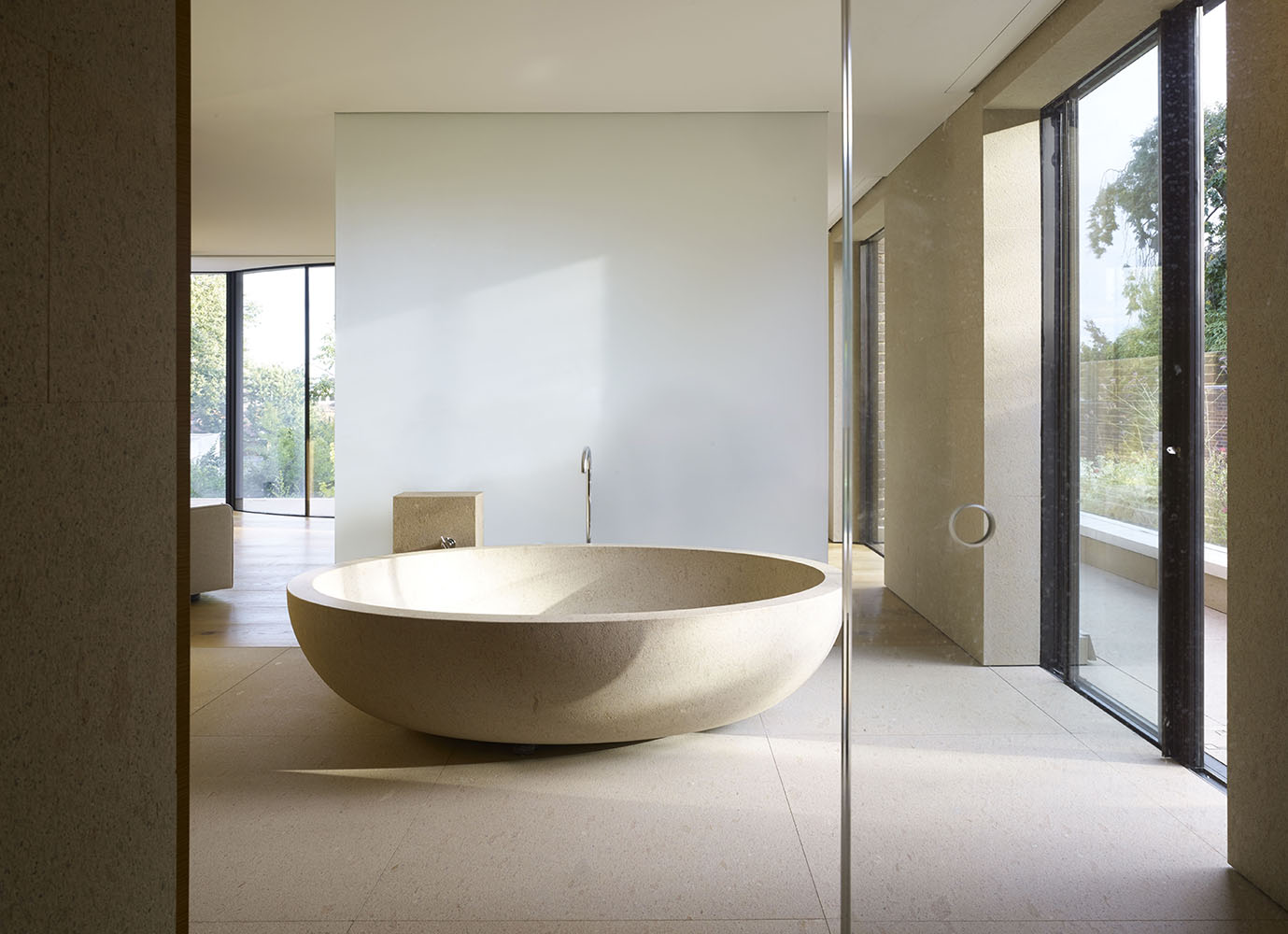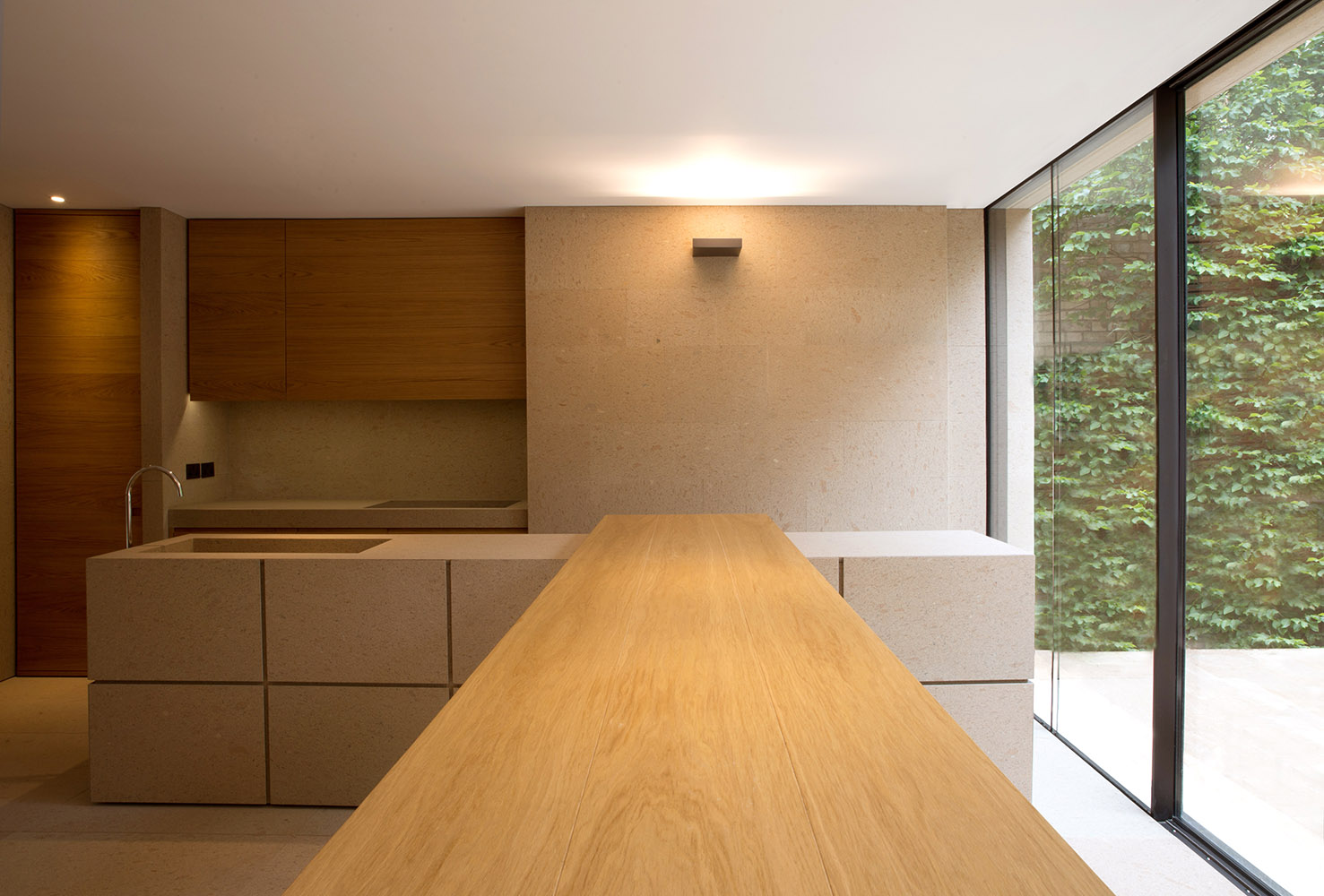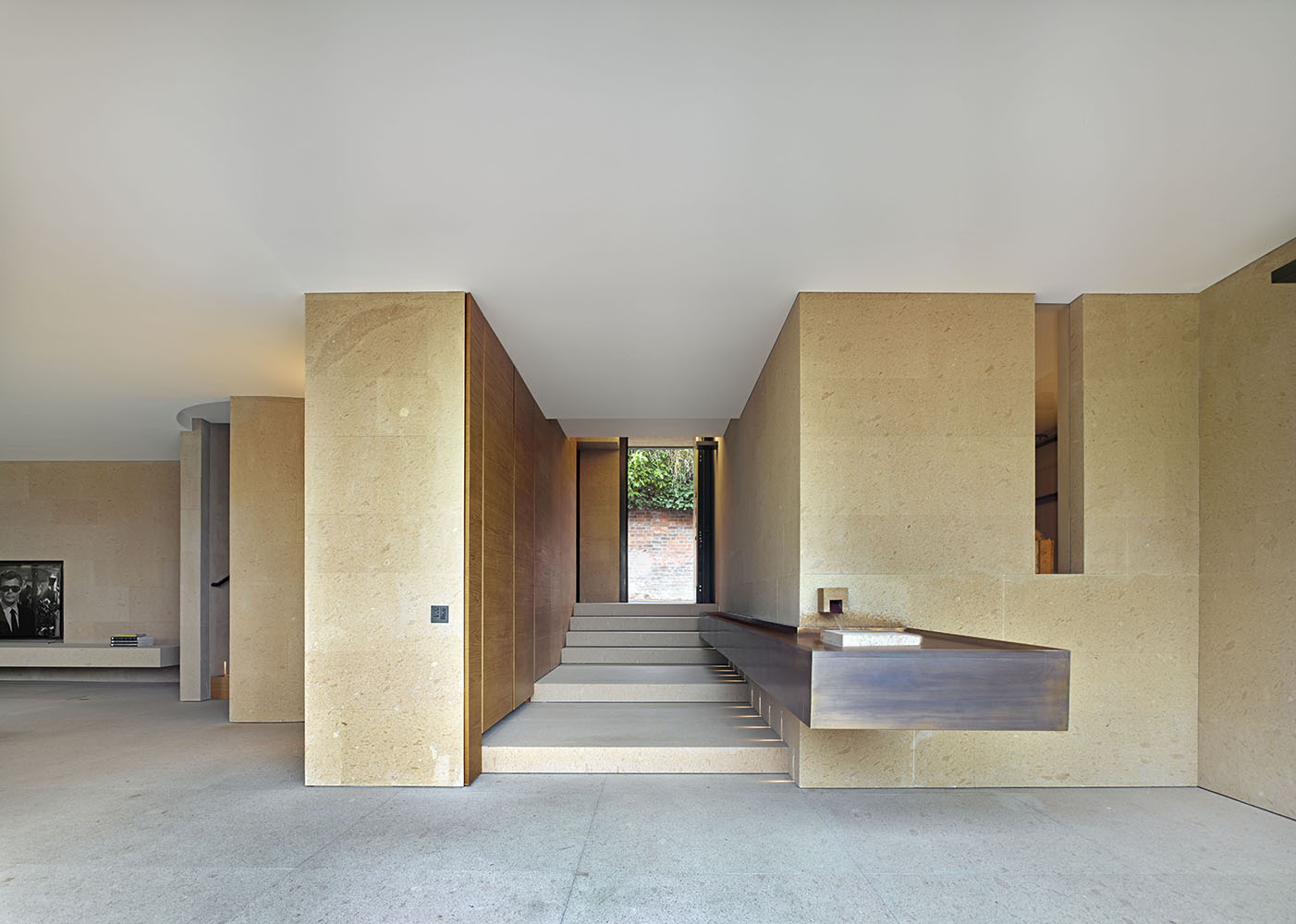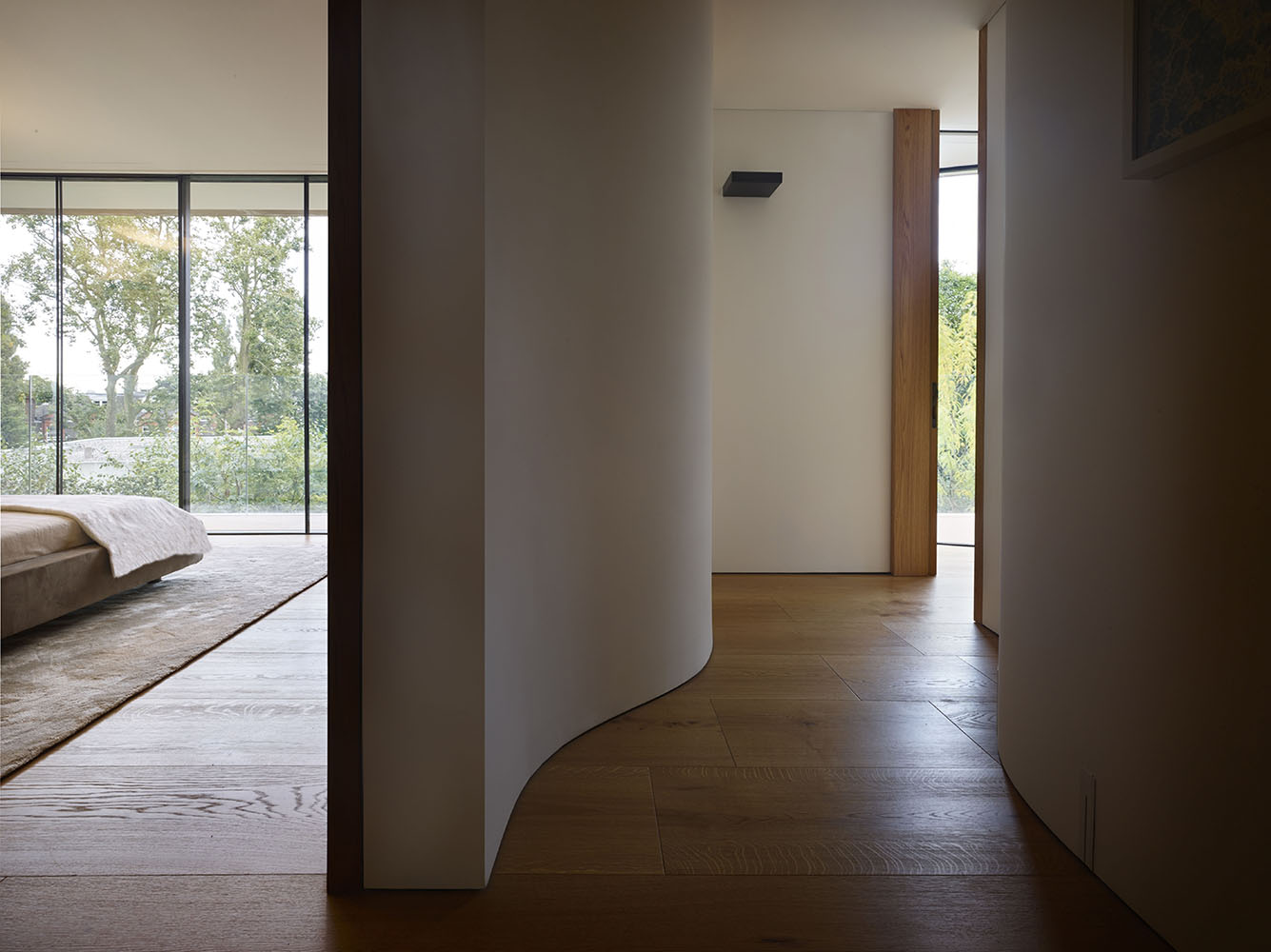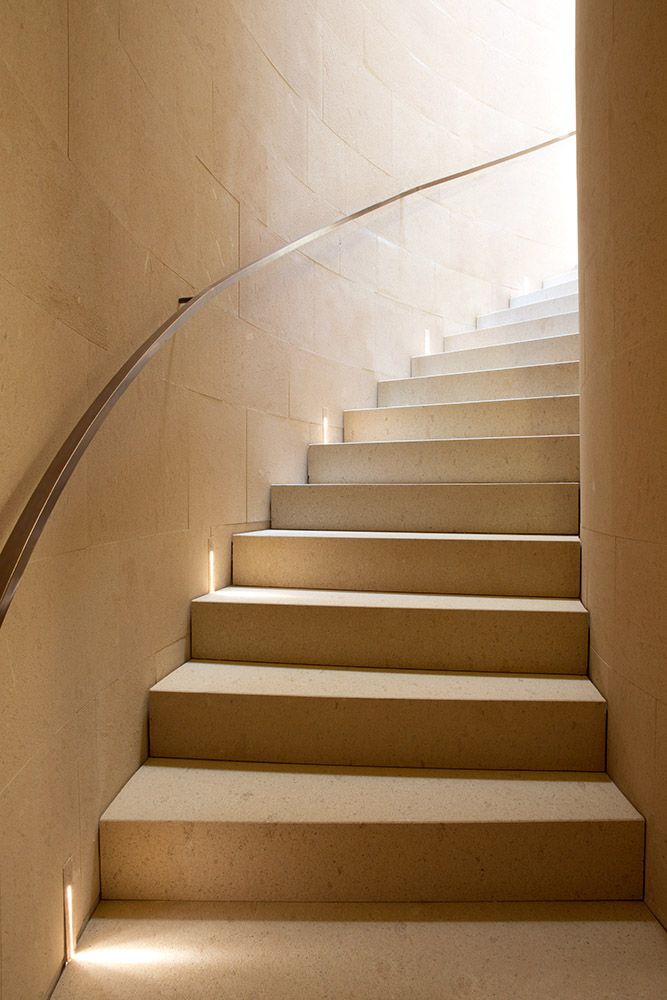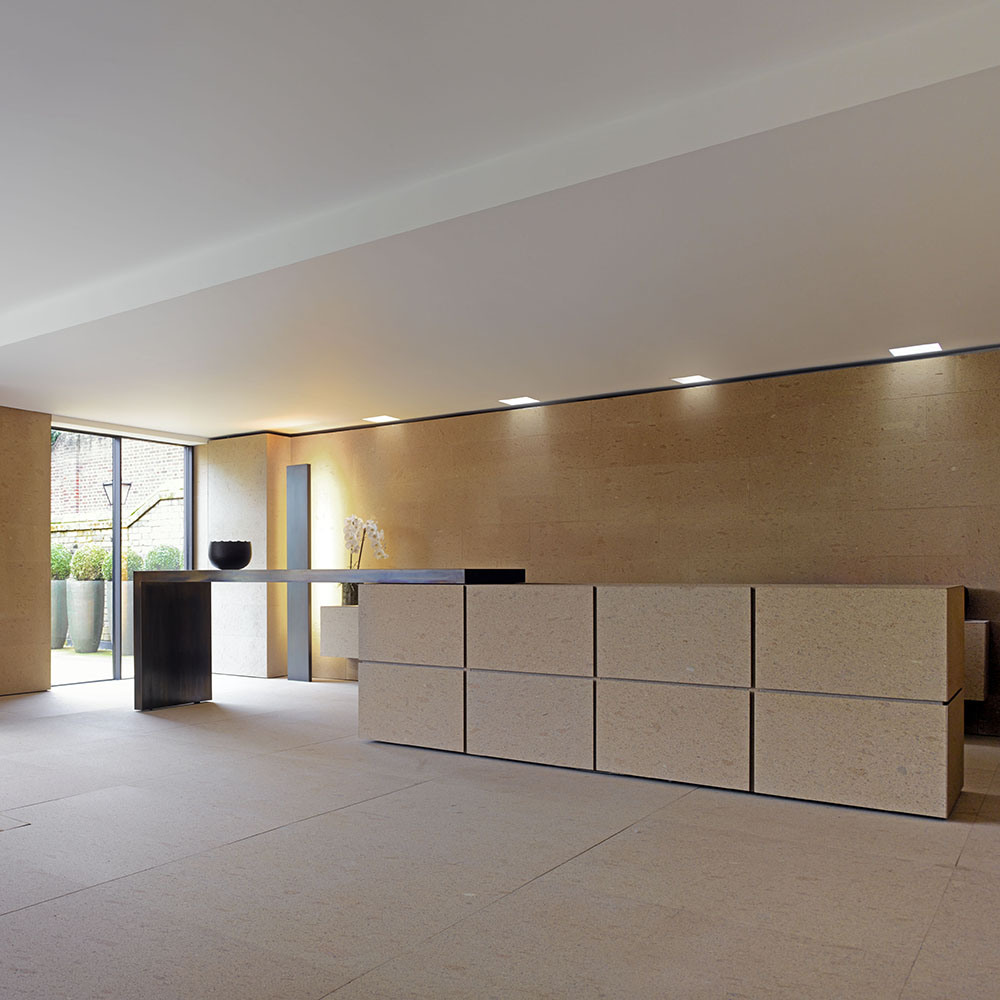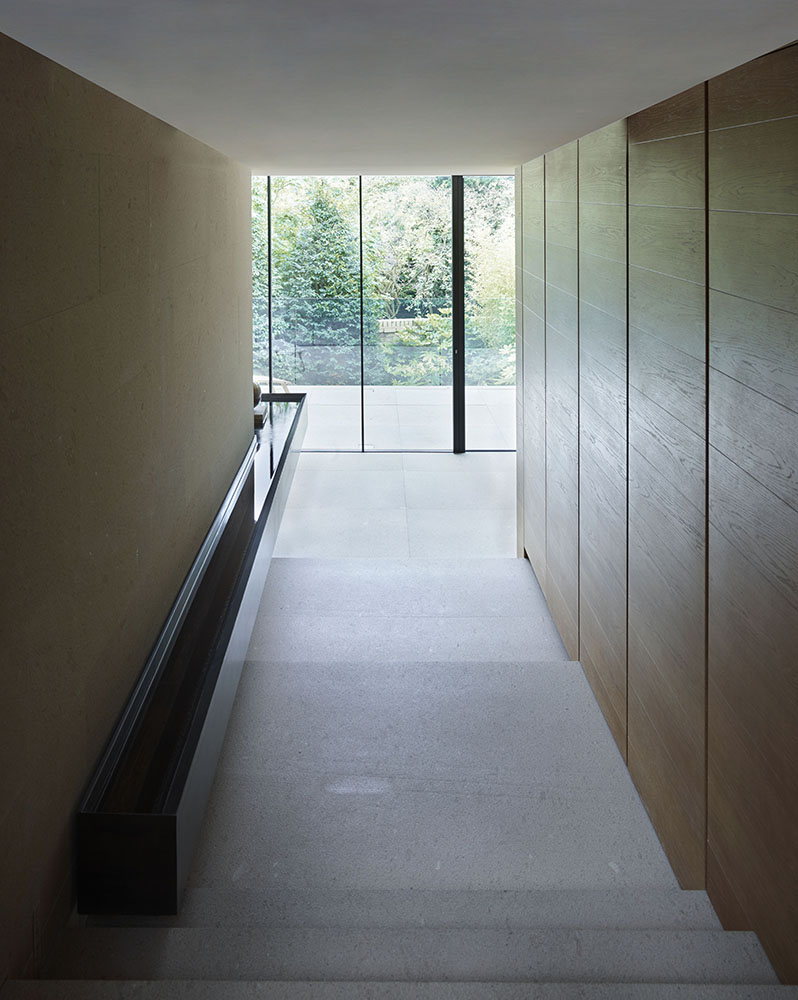Cannon Lane House
London, 2016
This newly built house is located in the conservation area of Hampstead village in north-west London.
The project, commissioned by a developer with the intention of selling it to the luxury market, comprises a 5-storey house of 800 m², with an inset garage, 160 m² garden, and an indoor pool / spa.
From the street, at the top of a narrow lane, the house has a quiet and understated elegance, in brickwork and glass. But stepping inside is to enter into another world, as if a cottage has been transformed into a castle.
In warm earth tones, which range from honey through to bronze, and austere but luxurious lines, the interior reflects the distinguished work of architect Claudio Silvestrin.
The natural materials and colours are kept to a minimum: yellow-ochre porphyry on the walls (from the Italian Dolomites), oxidised brass with a bronze finish (on handles, surfaces and railings), yellow-ochre porphyry, and oak on the floors. The simplicity invites touch, and the textures create abstract compositions. There is a constant dialogue between the straight and the curved line, and between openness and intimacy, with vertical window slits contrasting with expansive curved windows and glass balconies that offer views over London, reaching to the Shard.
The feeling is of a calm, serene, almost monastic space; and to achieve this simplicity, technology is mostly hidden. There is no ornamentation of any kind.
There is drama, however: a stone staircase of 42 continuous steps leads down to a pool and spa, into which only a little concentrated light is permitted, giving it the feeling of a cave or other ancient site.
A place of luxury, in terms of modern comforts (there is also a private cinema room), the house is also a demonstration of Silvestrin’s philosophy that extreme simplicity, with a perfection of line, material and light, results also in a luxury of spirit.
All the pictures © James Morris, © Pietro Savorelli, © Giulia Ricagni.
Cannon Lane House
London, 2016
This newly built house is located in the conservation area of Hampstead village in north-west London.
The project, commissioned by a developer with the intention of selling it to the luxury market, comprises a 5-storey house of 800m², with an inset garage, 160m² garden, and an indoor pool / spa.
From the street, at the top of a narrow lane, the house has a quiet and understated elegance, in brickwork and glass. But stepping inside is to enter into another world, as if a cottage has been transformed into a castle.
In warm earth tones, which range from honey through to bronze, and austere but luxurious lines, the interior reflects the distinguished work of architect Claudio Silvestrin.
The natural materials and colours are kept to a minimum: yellow-ochre porphyry on the walls (from the Italian Dolomites), oxidised brass with a bronze finish (on handles, surfaces and railings), yellow-ochre porphyry, and oak on the floors. The simplicity invites touch, and the textures create abstract compositions. There is a constant dialogue between the straight and the curved line, and between openness and intimacy, with vertical window slits contrasting with expansive curved windows and glass balconies that offer views over London, reaching to the Shard.
The feeling is of a calm, serene, almost monastic space; and to achieve this simplicity, technology is mostly hidden. There is no ornamentation of any kind.
There is drama, however: a stone staircase of 42 continuous steps leads down to a pool and spa, into which only a little concentrated light is permitted, giving it the feeling of a cave or other ancient site.
A place of luxury, in terms of modern comforts (there is also a private cinema room), the house is also a demonstration of Silvestrin’s philosophy that extreme simplicity, with a perfection of line, material and light, results also in a luxury of spirit.
All the pictures © James Morris, © Pietro Savorelli, © Giulia Ricagni.
Cannon Lane House
London, 2016
This newly built house is located in the conservation area of Hampstead village in north-west London.
The project, commissioned by a developer with the intention of selling it to the luxury market, comprises a 5-storey house of 800 m², with an inset garage, 160 m² garden, and an indoor pool / spa.
From the street, at the top of a narrow lane, the house has a quiet and understated elegance, in brickwork and glass. But stepping inside is to enter into another world, as if a cottage has been transformed into a castle.
In warm earth tones, which range from honey through to bronze, and austere but luxurious lines, the interior reflects the distinguished work of architect Claudio Silvestrin.
The natural materials and colours are kept to a minimum: yellow-ochre porphyry on the walls (from the Italian Dolomites), oxidised brass with a bronze finish (on handles, surfaces and railings), yellow-ochre porphyry, and oak on the floors. The simplicity invites touch, and the textures create abstract compositions. There is a constant dialogue between the straight and the curved line, and between openness and intimacy, with vertical window slits contrasting with expansive curved windows and glass balconies that offer views over London, reaching to the Shard.
The feeling is of a calm, serene, almost monastic space; and to achieve this simplicity, technology is mostly hidden. There is no ornamentation of any kind.
There is drama, however: a stone staircase of 42 continuous steps leads down to a pool and spa, into which only a little concentrated light is permitted, giving it the feeling of a cave or other ancient site.
A place of luxury, in terms of modern comforts (there is also a private cinema room), the house is also a demonstration of Silvestrin’s philosophy that extreme simplicity, with a perfection of line, material and light, results also in a luxury of spirit.
